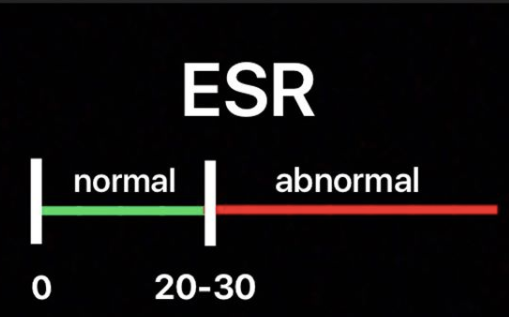Does Elevated ESR cause Hair Loss?
The ESR Test
The erythrocyte sedimentation rate (ESR) is a very sensitive but non specific test for inflammation. An increased ESR does not directly cause hair loss but can sometimes indicate that the patient has underlying inflammation in the body that could be giving hair loss. Determining the cause of an elevated ESR is detective work.
The upper limit for ESR is slightly greater for women than men but a normal ESR is usually less than 20-30 mm/hr.
There are some conditions associated with a high ESR that are associated with hair loss and there are some conditions associated with high ESR that have nothing to do with hair loss. However, conditions such as various infections, and especially the autoimmune diseases (lupus, rheumatoid arthritis, vasculitis, inflammatory bowel disease), as well as anemias, pregnancy, some thyroid diseases, inflammatory diseases of the gastrointestinal tract and advanced kidney failure can be associated with hair loss. Other conditions including some cancers (especially blood cancers and various metastatic cancers) are associated with increased ESR but usually are not associated with hair loss.
Very high ESR values over 100 mm/hr represent a special group. The group includes those that can be associated with hair loss include systemic lupus erythematosus, rheumatoid arthritis, and sometimes a few types of blood cancers (ie lymphomas, leukemias). Some drug hypersensitivity reactions can give very high ESR values and can also trigger hair loss. Polymyalgia rheumatica is in this group of conditions giving very high ESR values and can also sometimes give hair loss. Conditions in this group that usually don't give hair loss are infectious diseases such as abscesses, bacterial endocarditis and osteomyelitis.
The ESR test is a non specific test and many times a cause can't be found despite the patient having a full examination. Very high ESR levels may warrant additional testing. This may included other blood tests such as CRP, ANA, rheumatoid factor, LDH and possibly various imaging tests (depending on the precise history and precise level of ESR). There are hundreds of causes of increased ESR.
This article was written by Dr. Jeff Donovan, a Canadian and US board certified dermatologist specializing exclusively in hair loss.

